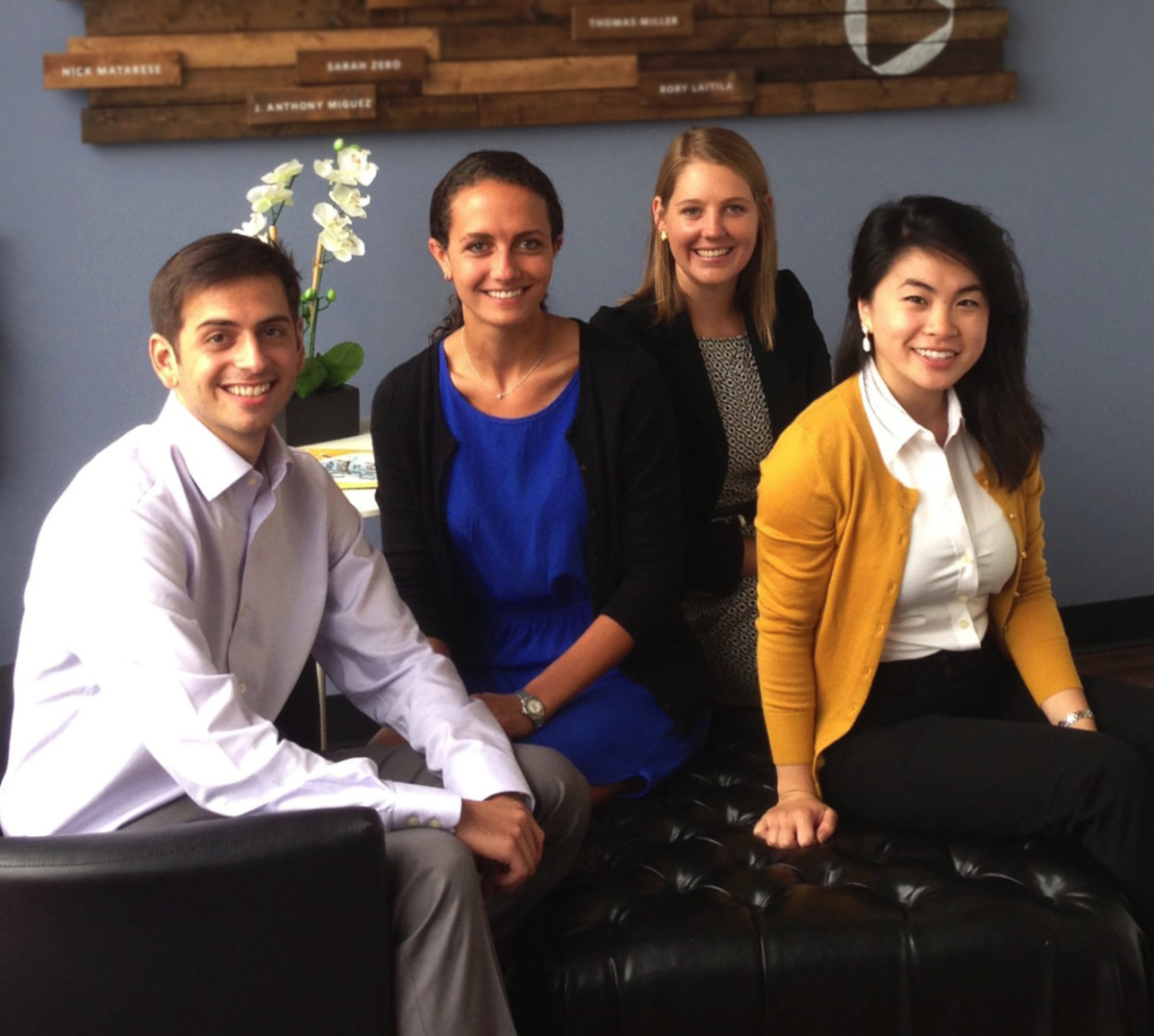This week, Delaware must say goodbye what’s arguably one of its youngest, most promising health startups — Meerkat Health, a smart scale for congestive heart failure patients.
Though the Health for America-incubated enterprise will be relocating to Washington, D.C. this week (where, coincidentally, next year’s HFA Fellowship will be located, out of coworking space 1776), the startup is currently trying to raise $285,000 to go back into Start It Up Delaware’s Social Impact Fund, which carried them through the year’s expenses.
“All the money that goes into the fund is tax deductible, so it’s a straight donation,” said HFA Fellow Megan Caldwell. “It’s not like a traditional investor fund where they will have equity within the companies that spin out of it, so it’s reallly just a tax write-off.”
Paying it forward, on the way out the door.
So far, Discover Bank (which helped raise the original $250,000 that went into the Fund last year) and Verizon have both put up cash. In addition, as part of the Social Impact Fund’s unique structure, Meerkat Health will begin putting money back into the pot as soon as it becomes profitable.
“We’ve proven the model can work, and that’s why we’re going back to these people,” said Caldwell, who will join co-Fellow Ellen Kourakos as cofounder when the startup moves to D.C. Fellows Sandra Hwang and Nick Azpiroz will be moving back to Baltimore and California, respectively, but will retain “advisor” roles with the company.
First, Meerkat needs to nail its prototype, and there’s still a bit of work to do.
Recently, the team took two varying prototypes to Christiana Care and Rittenhouse Square in Philadelphia, two very different locations where they held assumption-testing on the public.
“We learned a lot about differentiating between what’s an individual personal preference that we can’t really control, versus things we should actually factor into the design for safety reasons,” Hwang said.
They’ve also decided to make the leap from B2C to B2B — a game changer when keeping design in mind.
“Focusing on B2B has made it a very different product,” said Kourakos. One thing that’s challenging but also an opportunity for us is we’re creating a product that we will be selling to hospital systems, but it’s going to be used by a patient. We need to make it user friendly and patient-centric, but it also needs to have proven efficacy for the hospital.”
It's a very unique way to start a healthcare company
That means financial benefits and readmission reductions, among many other things.
“In healthcare, so often the customer is not the user of the product. So many of the processes or thinking strategies people use for product design treats the customer and user as the same person,” said Azpiroz. “It’s been really useful to do these assumption tests facing both sides in order to try to be that mediator between the two.”
The team already has two board members: a doctor from Christiana and a nurse from Johns Hopkins Hospital. They’ll be working on the scale’s algorithm over the course of the next few months.
Above all, the Meerkat founders have nothing but praise for the Social Impact Fund that launched them.
“It’s a very unique way to start a healthcare company,” said Kourakos. “We are given access to this money that’s otherwise incredibly difficult to get if you’re going through angel investors or venture capitalists or other funding sources.”
Especially when three-fourths of your team are women in Delaware.
“It allows an even playing field for groups that are traditionally underrepresented in venture funding,” said Caldwell. “Hopefully Meerkat makes enough money to fund multiple other social entrepreneurs.”
Join our growing Slack community
Join 5,000 tech professionals and entrepreneurs in our community Slack today!
Donate to the Journalism Fund
Your support powers our independent journalism. Unlike most business-media outlets, we don’t have a paywall. Instead, we count on your personal and organizational contributions.




